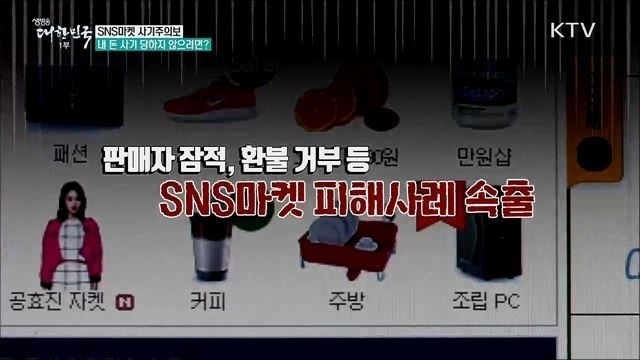Instagram influencers are becoming key players in the product marketing business. From launching collaboration brands to opening online markets or stores in their names, the trend is securing itself a solid place in the product e-commerce forefront. In 2017, advertising companies in the U.S. invested around $1billion US in Instagram influencer-based marketing. In Korea, there were more than 20,000 co-purchase tags for ‘Happy Parenting’ and ‘Happy Prince’. This tag was used for joint online purchases, otherwise known as Instaco-purchase. So how does this work? First, the influencer posts about the specific item, arousing customer interest by constantly featuring pictures promoting certain products. Second, customers who are exposed to this repetitive advertisement ask questions about that item and if there are enough people who want to buy the product, small co-purchases are organized. However, as the number of co-purchases grow, problems and complaints with the products have steadily grown with it. Before looking at the problems, we should take a moment to compare the characteristics of a regular offline consumer co-purchase and an Instagram co-purchase. The concept of co-purchasing is a reasonable consumption strategy that enables many customers to buy a product together at a reasonable price. While consumers can buy the product at discounted prices, sellers can offset the profits lost by selling the product in large quantities, making it a win-win transaction. However, Instagram joint purchases are different. As previously mentioned, before any joint purchases are made, sellers, such as media influencers, stimulate consumer desire to purchase certain product by profiling them in their accounts exposing it to their base of followers. Then, followers exposed to this repetitive advertisement, begin to inquire about the source or price of the product. At this point, sellers appeal to the consumer by offering access to limited quantities of the item. Interested customers then respond by posting a comment.
The Seoul Electronic Commerce Center surveyed consumers to find out why they buy goods on SNS. Two of the biggest reasons were ‘the availability of hard-to-get products, such as foreign goods that are not sold in Korea’ and ‘the price is lower than other purchasing places because users have quick access to events and group purchases conducted on SNS e-commerce’. However, the truth behind SNS e-commerce transactions is far from positive. First, there are often situations where the product benefits are falsely promoted. For example, Retailer B provided an advertisement guideline to his affiliated influencer, prompting him to post on SNS articles and photos containing false anti-inflammatory and blood circulation benefits for their product. In addition, there were cases where refunds or exchanges were never honored and consumers were suddenly cut off from the vendor. Finally, since the price is not made public, consumers are only told of the costs through messages. In this case, they are often encouraged to pay in cash, raising a lot of questions regarding tax evasion.
In order to learn how to better protect yourself, The Dankook Herald interviewed a representative with the Seoul Electronic Commerce Center. First, we asked what problems they see with e-commerce via SNS. They said there is a lack of business information available for the consumer. “Unlike regular Internet shopping malls, which require information on the seller, Instagram commerce has none.” We also asked how consumers can avoid problems with SNS e-commerce transactions. They said, “We know that the Ministry of Food and Drug Administration and the Fair Trade Commission are taking measures to manage these problems. For their exact policies and any legal action available, we recommend contacting those organizations directly. In addition, education to the sellers is needed.” Next, we brought up the problem of refunds. Consumers have complained that they were unable to get a refund if they simply changed their mind after receiving a product made by joint purchase. The Centre representative confirmed this practice was in fact illegal. Finally, we asked “What consumers should value and consider to avoid those problems?”. They responded, “It's very easy to make impulsive purchases on Instagram. Therefore, rather than impulse buying, it is better to do you research first. Check whether other malls selling similar products exist or not and price it by an Internet search first before buying. And when you decide to buy, purchase your item from an Internet shopping mall rather than through Instagram and avoid paying in cash.
According to a survey organized by the Seoul E-Commerce Center, inquiries about sellers topped the list with 53.3% of consumers requiring help to resolve complaints after purchasing goods. On the other hand, the official consumer counseling agency has just 17.6% of requests related to SNS e-commerce transactions. This leads us to believe that there are far more consumers affected by SNS e-commerce transactions. To minimize the damages experienced, we should heed the advice of our experts and do our own research before buying. By working on curtailing our impulsive purchasing habits, people can live more comfortably, secure in the knowledge that securely backed purchases are always possible.
 |
| ▲ There are many cases of damage, such as refusing refunds and the seller going into hiding. (Photo from KTV) |
전소영, 최윤서, 김민경 dankookherald@gmail.com

![[Campus Magnifier] Let's Surf the Library!](/news/photo/202404/12496_1765_4143.jpg) [Campus Magnifier] Let's Surf the Library!
[Campus Magnifier] Let's Surf the Library!
![[Campus Magnifier] Let's Surf the Library!](/news/thumbnail/202404/12496_1765_4143_v150.jpg)





